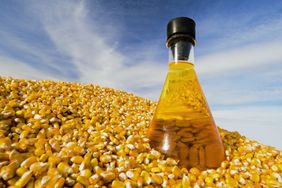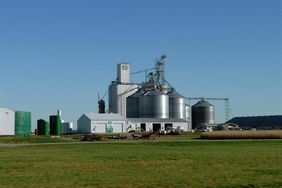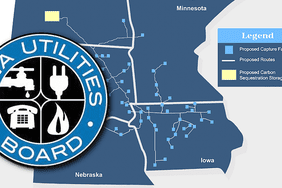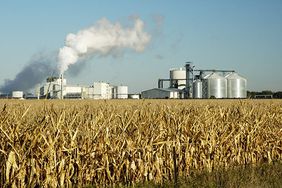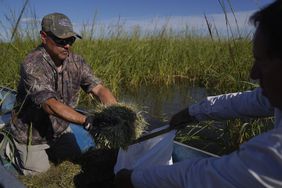:max_bytes(150000):strip_icc()/48040581316_b1757bdd34_k-2000-cf5489b11afb4dbe8ff8483482d81c8e.jpg)
April 30 (Reuters) - The Biden administration on Tuesday released guidance on its sustainable aviation fuel (SAF) subsidy program that allows corn-based ethanol to qualify as a feedstock provided it is sourced from farms that use climate-friendly growing techniques.
The plan is likely to be bittersweet for the politically-powerful U.S. ethanol industry that is eager to secure the subsidies but had hoped for a lower hurdle.
Air travel so far accounts for about 2% of U.S. carbon pollution and is one of the fastest growing sources.
President Joe Biden hopes that creating a subsidized market for lower-emissions SAF can contain that threat, while also giving a boost to farm country, an important constituency in November’s presidential election.
"President Biden, I think, understood intuitively the important role that America agriculture and farmers would play in this new future," Agriculture Secretary Tom Vilsack said in announcing the plan.
SAF can be made from corn, soy or other agricultural products. But to access the SAF subsidies that make it economically viable to produce, refiners must demonstrate their fuel is 50% lower in emissions than petroleum jet fuel.
Ethanol-based SAF can meet that threshold, according to the guidance, but only if the corn farmers that supply it use agriculture practices including no-till, cover cropping and efficient fertilizer application that can hold carbon in the soil.
Soy-based biodiesel will also qualify as a feedstock if its soy comes from farms using no-till and cover cropping, according to the announcement.
The plan was based on an update to the GREET climate model that covers the lifecycle emissions of ethanol and other biofuels under a variety of circumstances and includes the climate impact of related land use changes.
The biofuel lobby had pushed hard to ensure the GREET update would make it easy for ethanol to qualify as an SAF feedstock.
Some environmental groups and researchers are concerned the SAF strategy will not deliver the promised climate gains, however, in part because of scientific uncertainty about the benefits of no-till or cover crop farm techniques.
Despite those uncertainties, Bill Hohenstein, director of USDA's Office of Energy and Environmental Policy, said the administration is confident in the plan.
“We do have robust data, analysis, information and modeling that all supports the conclusions that these practices do have greenhouse gas benefits," he said.
(Reporting by Richard Valdmanis; editing by Barbara Lewis)
